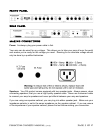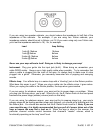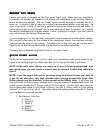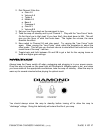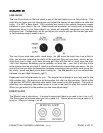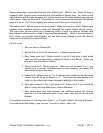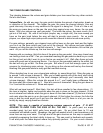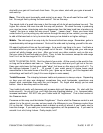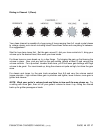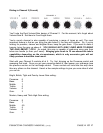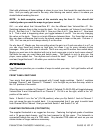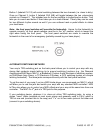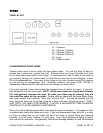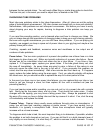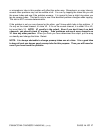
PHANTOM OWNER’S MANUAL (rev.2) PAGE 13 OF 17
Button 1 (labeled CH 1/2) will control switching between the two channels (i.e. clean to dirty).
Once on Channel 2, button 2 (labeled CH2 A/B) will toggle between the two volume/gain
controls on Channel 2. The intended use for the two settings is rhythm/lead so button 1 will
take you to crunch and button 2 then takes you to a lead channel. Clearly they can be used
for two different rhythm sounds as well if you use outboard rack or pedal effects to obtain
your lead tones.
Note: the front panel switches will override the footswitch. Hence, for the footswitch to
operate correctly, all front panel switches must be in the “off” position, which is toward the
right when facing the front panel. The front panel switches are made to override the
footswitch in the event of an emergency (probably caused by your bass player).
ALTERNATE SWITCHING METHODS
Your amp’s TRS switching jack on the back panel allows you to control your amp with any
device that conducts simple latching tip to ground switching functions (e.g., the Diamond
Amplification/RJM Music MAC-2, a Bradshaw (Custom Audio Electronics) switching system,
an RJM Music Amp Gizmo, a TC Electronic G-System, a GCX switching system or a simple
latching footswitch). The three jacks correspond exactly with the front panel switches.
To get the most of your amp if you’re a MIDI kinda player, we recommend our MAC-2, which
will allow you to use this jack and switch your amp with any standard MIDI controller! MIDI
In/Thru also allows you to control your MIDI effects and your amp at the same time from one
controller. The MAC-2’s 4
th
jack is a TRS jack for this purpose.
If your switching device, whatever it is, does not utilize TRS switching jacks, try using a
stereo “insert” cable (available at most music stores and generally used in PA’s), which is
TRS at one end (connect this to the amp) and “Y’s” out to two mono jacks at the other end
(connect to your switching device).



